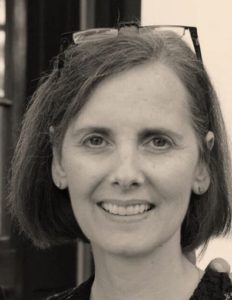 As a pilot initiative, we are led and run by committed volunteers. We are organized into what might be called a “squad” with 10 experienced coaches and 10 first-generation college juniors. Over the 17-month commitment, students receive guidance through one-on-one coaching and participate in an online, eight-part, monthly curriculum. Together, these two types of supports are designed to build networks, understanding, and skills to facilitate a successful transition from college-to-career.
As a pilot initiative, we are led and run by committed volunteers. We are organized into what might be called a “squad” with 10 experienced coaches and 10 first-generation college juniors. Over the 17-month commitment, students receive guidance through one-on-one coaching and participate in an online, eight-part, monthly curriculum. Together, these two types of supports are designed to build networks, understanding, and skills to facilitate a successful transition from college-to-career.
In the squad, each student is presented with basic descriptions of potential coaches (biosketches written by the coaches) and then chooses the one who they believe will best meet their professional development needs. These student/coach dyads meet one-on-one, either in-person, by phone or video conferencing, for approximately two hours per month. Based on their evolving needs, students are responsible for setting the agenda with their coach. They are also responsible for summarizing each meeting and following up on action items that are generated during those meetings.
The students participate in monthly, peer-to-peer facilitated dialogue video conferencing sessions with the founder. These sessions are guided by the FirstGen Ahead on-line curriculum. The online curriculum follows a relatively linear path that might or might not pertain to what is primarily being discussed in the one-on-one coaching sessions. The areas of learning through the online curriculum include: assessing self and networks; career exploration; marketing materials (resume, cover letter, online profile, and elevator pitch); internship search; and planning, problem-solving, and self-care. The first half of each online session consists of a dialogue based on student insights from homework assignments; the second half of the session introduces new professional development materials and homework assignments related to those materials. The content of the curriculum can be adjusted based on insights from coaches and other data sources.
Coaches participate in their own orientation and monthly support sessions via video conferencing. These monthly sessions are facilitated by Dr. Lois Benishek, a counseling psychologist (a master coach), and draw on the diverse talents of all the coaches. During the coach-to-coach sessions, information is imparted about the online curriculum and related homework as well as status updates from the coaching experience, including what’s working well and issues that need problem solving. Coaches support each other in sharing resources, ideas, and information that can benefit other students participating in the pilot, such as identifying people in their network who could be a good connection for conducting informational interviews or exploring internship opportunities.
As this is a pilot, we’re systematically tracking data on a monthly basis from both coaches and students. For operational purposes, we also collect periodic survey data. For example, a student survey on the helpfulness of the first three months of supports will be sent after they complete their fall semester final examinations, with results reported in a future issue of the newsletter.
Susan Gershenfeld, PhD



